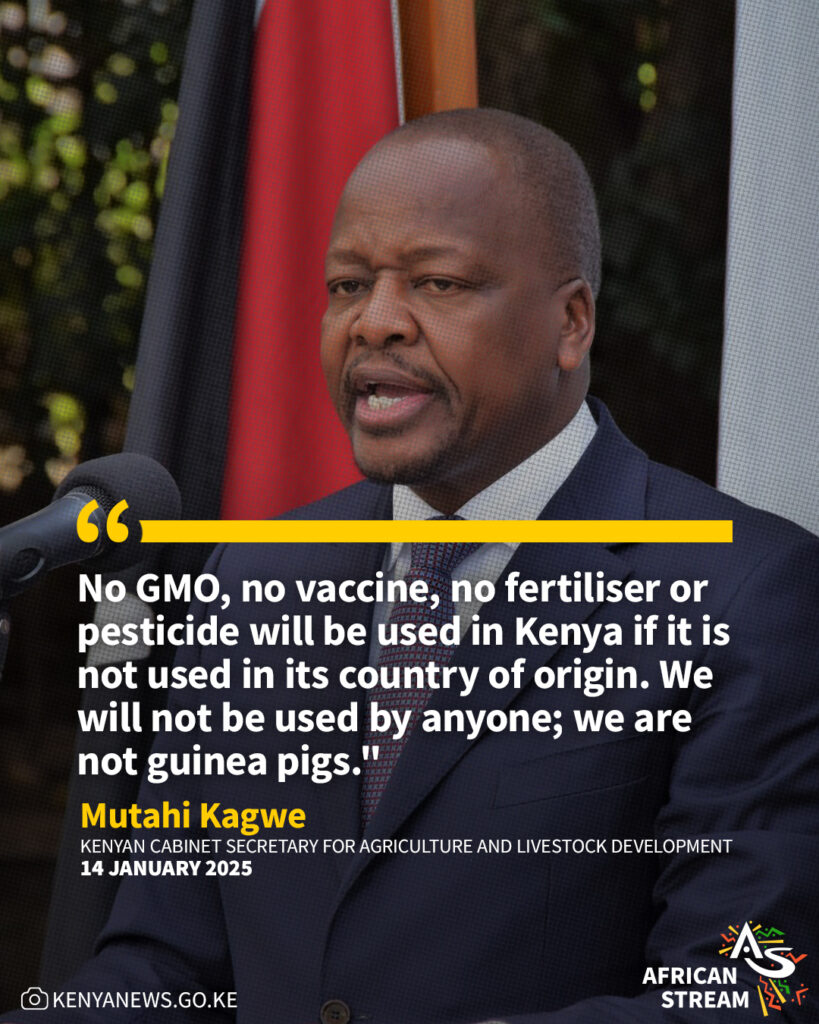Kenya’s newly appointed Cabinet Secretary for Agriculture and Livestock Development Mutahi Kagwe has sparked controversy by rejecting the entry of genetically modified (GM) foods and livestock vaccines into the East African country. Kagwe emphasised he intends to foster domestic innovation to strengthen the agricultural sector. The cabinet secretary stressed the importance of ensuring outsiders don’t use the Kenyan people to test their GM products.

His statements contradict the government’s support for such imports, raising questions about whether it will put him at odds with the government.
Kagwe’s remarks come amid a long-standing debate over GMO foods. After a decade-long ban on biotechnology foods, first implemented by former President Mwai Kibaki in 2012 and upheld by his successor, President Uhuru Kenyatta, the government lifted the ban in October 2022. This decision led to court petitions citing health, environmental, and biodiversity concerns. However, the High Court dismissed these petitions, stating that Kenya has established adequate safety measures under a robust biosafety regulatory framework.
In late December 2024, President William Ruto called for the vaccination of 22 million cattle and 50 million sheep and goats to boost meat exports. The move raised questions about the involvement of US billionaire Bill Gates, known for promoting GMOs, in the planned nationwide vaccination program, a claim denied by the government. A Gazette Notice in October 2024 announced that the government would grant certain privileges and immunities to the Bill and Melinda Gates Foundation’s operations in the country. However, the High Court later issued orders to suspend the foundation’s special status pending further hearings.
Will Kagwe’s new action plan be effective?
Sources:
https://www.voanews.com/a/kenyan-president-strongly-defends-animal-vaccination-program/7905837.html
https://new.kenyalaw.org/akn/ke/act/ln/2024/157/eng@2024-10-18
